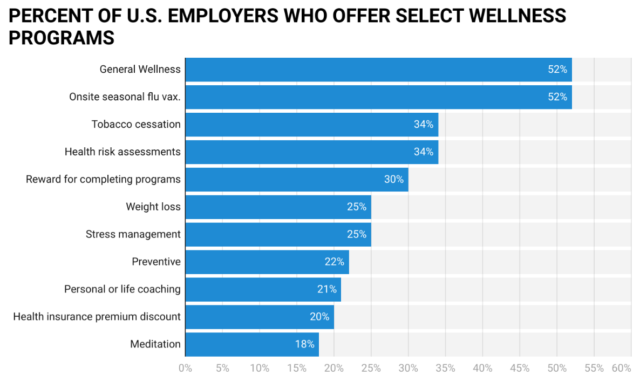
2024 Evolution of Employer Health Investments
In the pre-Covid era, employers relied heavily on a single major carrier for employee benefits. However, the dynamics have undergone a significant transformation, with a new emphasis on providing a diverse array of solutions tailored to specific conditions. This shift, driven by considerations of affordability, cost reduction, and improved outcomes, has reshaped the landscape of employer investments in health benefits.
Diversification in Investment
Employers are no longer exclusively investing with a single major carrier. Drew Hodgson from Willis Towers Watson notes that specialty vendors are gaining attention as supplements to traditional carriers. This diversification allows employers to explore a broader range of solutions beyond the conventional one-stop-shop approach.
Examining Historical Patterns
To anticipate the future, we must examine the past. Historical data reveals that Big Tech layoffs have occurred periodically, often corresponding to economic downturns or industry transformations. However, the severity and frequency of these layoffs can vary widely.
Benefit Advancements for 2024
Statistics from a recent Mercer survey indicate that approximately 70% of large employers are planning benefit advancements for the upcoming year. The primary focus is on enhancing benefits to improve attraction and retention. This signifies a strategic shift towards prioritizing employee well-being and satisfaction.
Rising Importance of Behavioral Health
One notable area of focus is behavioral health, with 88% of employers taking actions to enhance their mental health service capabilities. The Covid-19 pandemic has led to increased anxiety, depression, and adjustment disorders among employees. As a response, employers are actively addressing mental health and emotional well-being, with various programs and services being implemented
Reproductive Health in the Workplace
Employers are recognizing the significance of reproductive health, with 37% offering solutions in this area. Fertility benefits and concierge fertility services are becoming more prevalent, aligning with the evolving needs of employees. Health vendors like Carrot Fertility and Maven Clinic are contributing to this shift.
Affordability as a Major Priority
Affordability is a key concern for larger employers, leading to a decrease in the exclusive reliance on high-deductible consumer-directed health plans. The shift aims to assist lower-paid employees in affording necessary care, reflecting a commitment to providing flexibility in benefit options.
Beyond Basics: A Plethora of Investments
Employers are extending their investments beyond basic health benefits. Initiatives for health equity, virtual health, caregiving support, and more are gaining prominence. However, the increasing complexity of options is causing point solution fatigue among employers.
Point Solution Fatigue
The market saturation with various point solutions has resulted in employer fatigue. Navigation vendors like Accolade and Quantum Health step in as a solution by simplifying the decision-making process. Despite challenges in proving direct ROI, these vendors offer a consolidated approach to accessing diverse care options.
Scrutiny in Economic Environments
Employers are scrutinizing the effectiveness of added benefits, analyzing overlaps, and seeking streamlined and integrated solutions. Ellen Kelsay, CEO of Business Group on Health, emphasizes a rational approach, expecting partners to deliver integrated patient experiences aligned with post-pandemic realities.
Lifestyle Spending Accounts
Some employers are adopting lifestyle spending accounts, providing financial support for employees to choose benefits based on their needs. This flexible approach allows employees to address stress and mindfulness, contributing to a more personalized employee experience.
Conclusion
The evolution of employer investments in health benefits reflects a transformative journey, driven by the need for diverse, employee-centric solutions. As employers navigate the complexities of the post-pandemic era, the emphasis on integrated, cost-effective, and quality outcomes is paramount




